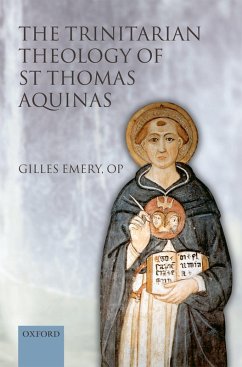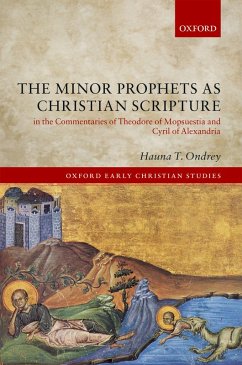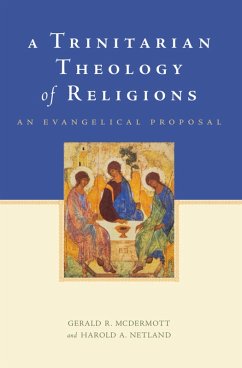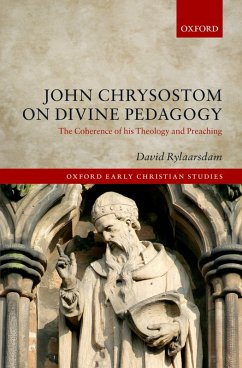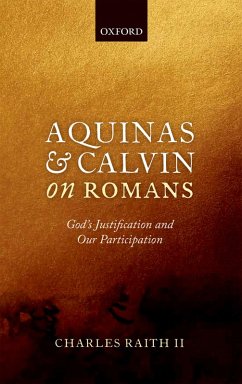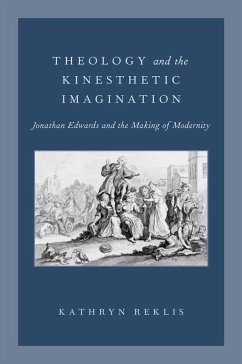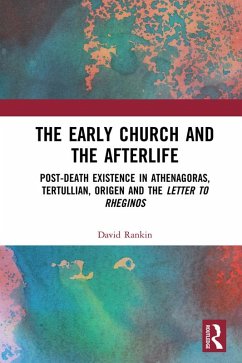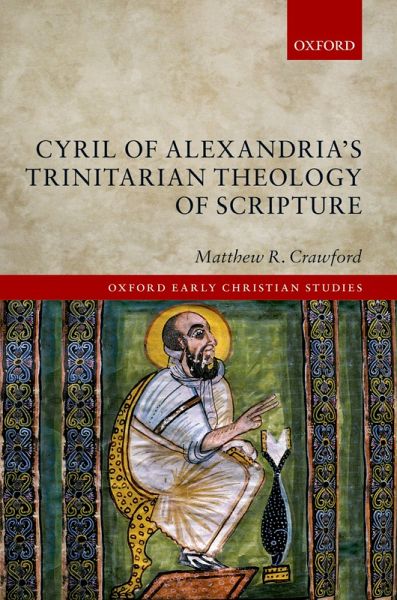
Cyril of Alexandria's Trinitarian Theology of Scripture (eBook, PDF)

PAYBACK Punkte
27 °P sammeln!
More exegetical literature survives from the hand of Cyril of Alexandria than nearly any other Greek patristic author, yet this sizable body of work has scarcely received the degree of attention it deserves. In this work, Matthew R. Crawford reconstructs the intellectual context that gave rise to this literary output and highlights Cyril's Trinitarian theology, received as an inheritance from the fourth century, as the most important defining factor. Cyril's appropriation of pro-Nicene Trinitarianism is evident in both of his theology of revelation and his theology of exegesis, the two foci th...
More exegetical literature survives from the hand of Cyril of Alexandria than nearly any other Greek patristic author, yet this sizable body of work has scarcely received the degree of attention it deserves. In this work, Matthew R. Crawford reconstructs the intellectual context that gave rise to this literary output and highlights Cyril's Trinitarian theology, received as an inheritance from the fourth century, as the most important defining factor. Cyril's appropriation of pro-Nicene Trinitarianism is evident in both of his theology of revelation and his theology of exegesis, the two foci that comprise his doctrine of Scripture. Revelation, in his understanding, proceeds from the Father, through the Son, and in the Spirit, following the order of Trinitarian relations. Moreover, this pattern applies to the inspiration of Scripture as well, insofar as inspiration occurs when the Son indwells human authors by the Spirit and speaks the words of the Father. Although Cyril's interpretation of revelation may consequently be called 'Trinitarian', it is also resolutely Christological, since the divine and incarnate Son functions as the central content and mediator of all divine unveiling. Corresponding to this divine movement towards humanity in revelation is humanity's appropriation of divine life according to the reverse pattern--in the Spirit, through the Son, unto the Father. Applied to exegesis, this Trinitarian pattern implies that the Spirit directs the reader of Scripture to a Christological interpretation of the text, through which the believer beholds the incarnate Son, the exemplar of virtue and the perfect image of the Father, and accordingly advances in both virtue and knowledge. This process continues until the final eschatological vision when the types and riddles of Scripture will be done away with in light of the overwhelming clarity of the Christologically-mediated Trinitarian vision.
Dieser Download kann aus rechtlichen Gründen nur mit Rechnungsadresse in A, B, BG, CY, CZ, D, DK, EW, E, FIN, F, GR, HR, H, IRL, I, LT, L, LR, M, NL, PL, P, R, S, SLO, SK ausgeliefert werden.




